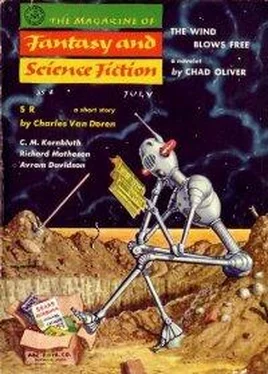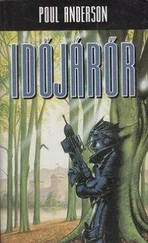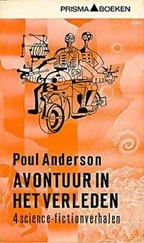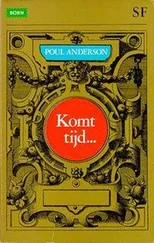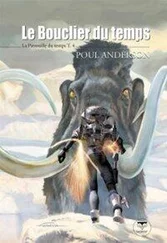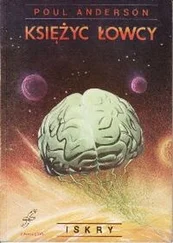Life Cycle
by Poul Anderson
A science-fiction writer may, of course, speculate about things that science has not yet discovered. But whenever he deals with what is already known, he should get his facts straight.
That’s what I tried to do in this story. The planet Mercury was depicted as accurately as possible by me, according to the best available data and theories, as of 1957.
The trouble is, scientific “facts” won’t stay put. In the spring of 1965, radar and radio observations indicated that Mercury does not eternally turn the same face toward the sun and that the dark side—even in the course of a very long night—does not get especially cold.
So perhaps this story should not now be reprinted, or perhaps it should at least have been rewritten. But information is still coming in; we are not quite sure that the new data mean what we think they mean; surely all our ideas are due for another upset or two before we get to Mercury and see for ourselves. It is not yet impossible that the older picture may turn out to have been right after all. Be that as it may, theory at the moment is in such a state of flux that one can’t say with any confidence what Mercury, or any other part of the universe, really is like.
Let this older story remain unchanged, then, as an intellectual exercise if nothing else.
—Poul Anderson
“Well, all right! I’ll go to their temple myself!”
“You must be crazy even to think of such a tonteria ,” said Juan Navarro. He sucked hard on his pipe, decided it was finished, and knocked out the dottle. “They would tear you in pieces.”
“Quicker than starving to death on this hellhound lump of rock.”
“ Very small pieces.” Navarro sat down on a workbench and swung his legs. He was a Basque, medium-sized, longheaded, dark-haired, with the mountaineer’s bony independence in his face. He was also a biologist of distinction, an amateur violinist, and a hungry man waiting to die. “You don’t understand, Joe. Those Dayside beings are not just another race. They are gods .”
Joe Kingsbury Thayendanegea, who was a stocky Mohawk from upper New York State, paced the caging space of the room, hands behind his back, and swore. If he had had a tail, he would have lashed it. He was the pilot and engineer, the only other Terrestrial on Mercury. When you dived this far down into the sun’s monstrous gravitational well, you couldn’t take a big crew along.
“So what else can you think of?” he challenged. “Shall we draw straws and barbecue the loser?”
Antella, the owl-faced Martian mineralogist, made a harsh cawing in his gray-feathered throat. “Best it be me,” he advised. “Then no one is technically guilty of cannibalism.”
“Not much meat on that skinny little frame of yours, amigo ,” said Navarro. “And a human body would have so many other uses after one was finished with the organic parts. Make the vertebrae into chessmen—the ribs into Venetian blinds for bay windows—yes, and the skulls would make distinctive mousetraps.”
Kingsbury shook heavy shoulders and thrust his beaky face forward. “What are we yattering about?” he demanded. “We’ve got a week’s slim rations left aboard this clunk. After that we start starving.”
“So you are going to the temple and confront the gods and convince them of the error of their ways. Ka!”
Antella clicked his short, curved bill. “Or did you think to threaten them with our one solitary pistol?”
“I’m going to try and find out what the Twonks—or their gods, if you insist—have against us,” said Kingsbury. “Here’s the idea: It’s getting close to sunrise time, and there’ll be a crowd of ’em at the temple. I’ll go out on Dayside and find me an empty Twonk shell and get into it. With luck, I’ll pass unnoticed long enough to—”
Antella’s brass-colored eyes widened. “The scheme is a bold one,” he admitted. “As far as I know, there is strict silence during the ceremonies, whatever they are. You just might accomplish it.”
Navarro leered. “I know exactly what you would accomplish, Joe. Do you remember that story you tell me, oh, last year I think it was? About the tourist in the North forest, and the Canuck guide, and the moose call?”
“Yeah. ‘Ze moose, she—’ Hey! What do you mean?”
“Precisely. That temple is a breeding place. They go there to breed.”
“How do you know? I’ve been tramping around arguing with the Twonks, and you’ve just sat here in the lab.”
Navarro shrugged. “What else could I do but my research? I studied the biochemistry of Mercurian life. I worked out the life cycle of a few plants and one insectoidal form.”
“They all look like insects. But go on.”
“The first expedition established no more than that Mercurian life has a silicate base,” recapitulated Navarro. “Otherwise they were too busy staying alive and teaching English to the natives and making maps. But they brought home specimens, which were analyzed. And one strange fact became evident: Those specimens could not reproduce under Twilight Zone conditions. Yet they live here! And we see the natives lay eggs, which hatch; and lower forms bring forth their own kind in various ways—”
“I know,” grunted Kingsbury. “But why? I mean, what’s so puzzling about their reproduction?”
“The cells are totally different, both physically and chemically, from protoplasmic life,” said Navarro. “But there are analogues; there have to be. The basic process is the same, meiosis and mitosis, governed by a molecular ‘blue-print’ not unlike our chromosomes. However, though we know that such processes must take place, the silicate materials involved are too stable to undergo them. The ordinary exothermic reactions which fuel Mercurian life do not produce enough energy for the cell-duplication which is growth. In fact, adult Mercurians are even incapable of self-repair; wounds do not heal, they must depend on being so tough that in this low gravity they suffer few injuries.”
“So what happens?”
Navarro shrugged. “I do not know, except this much: that somehow, at breeding time, they must pick up an extra charge of energy. Analyzing small animals, I have identified the compound which is formed to store this energy and release it, by gradually breaking down, as the organism grows. It is all used up at maturity. But where is the temperature necessary to build up this molecule? Only on Dayside.
“Now these gods are said to live, on Dayside and meet the Twonks of Twilight at the temple. You know the breeding ceremonies take place when libration has brought the temple into the sunlight.”
“Go on,” said Antella thoughtfully.
“ Pues , one of the plants, has this life cycle; it grows in the Twilight Zone, on the sunward side, and its vines are phototropic. Eventually their growth and the libration bring them into the light. The spore-pods burst and the spores are scattered into the air. A few are blown back into Twilight, and they are now fertile; radiation has formed the necessary compound. Or consider one of the small insectoids I studied. It breeds here in the. usual manner, then the female crawls out into the light to lay her eggs. When they hatch, the little ones scurry back to the shade, and some of them reach shelter before they fry. Wasteful, of course, but even on this barren planet nature is a notorious spendthrift.”
“Wait a minute!” interrupted Kingsbury. Navarre liked tohear himself talk, but there are limits. “Are you implying that the Dayside gods are merely the sun? That because the Twonks have to have light when they breed, they’ve built up a sort of Apollo-cum-fertility cult?”
Читать дальше
